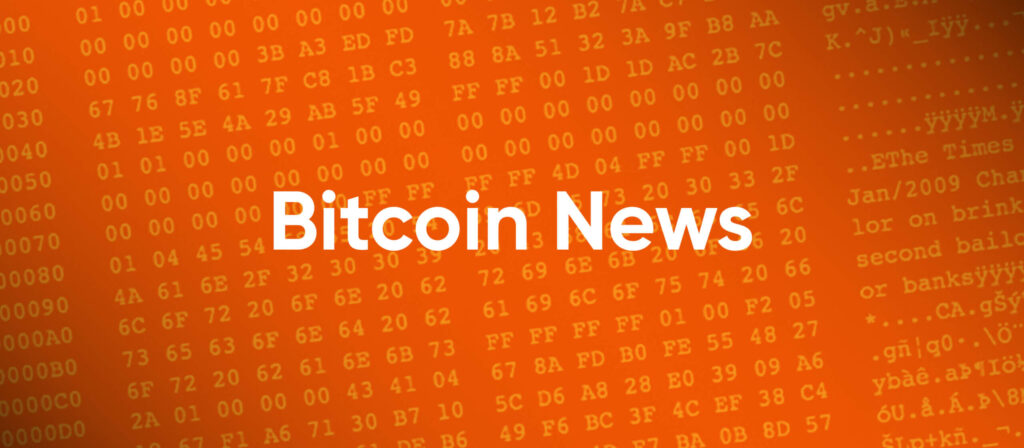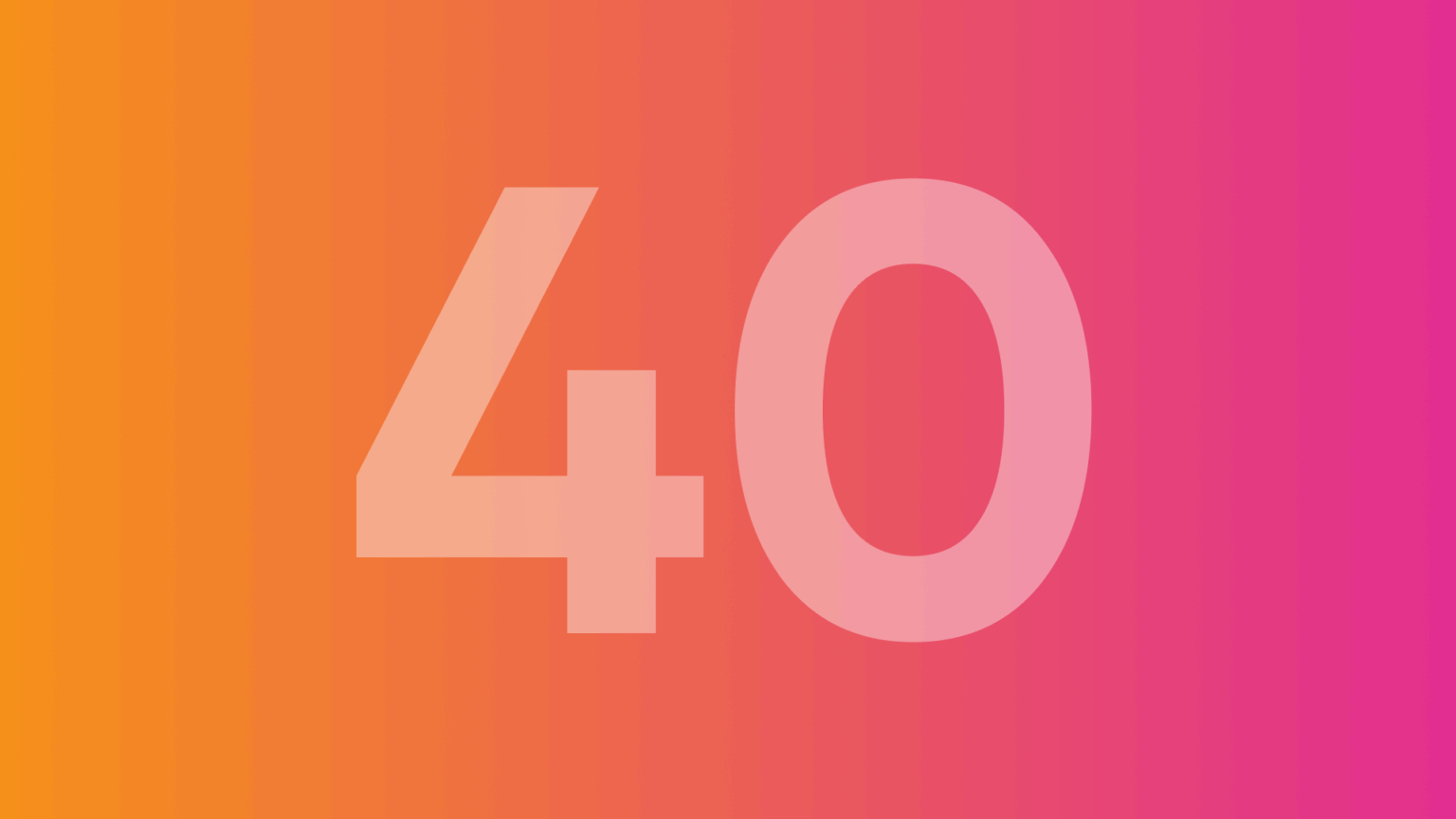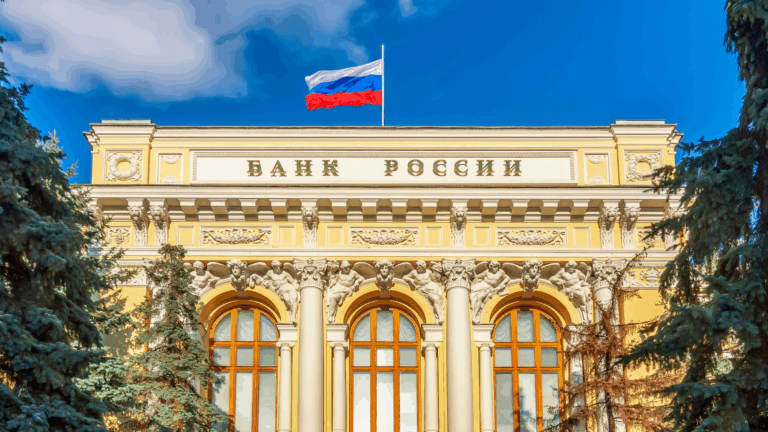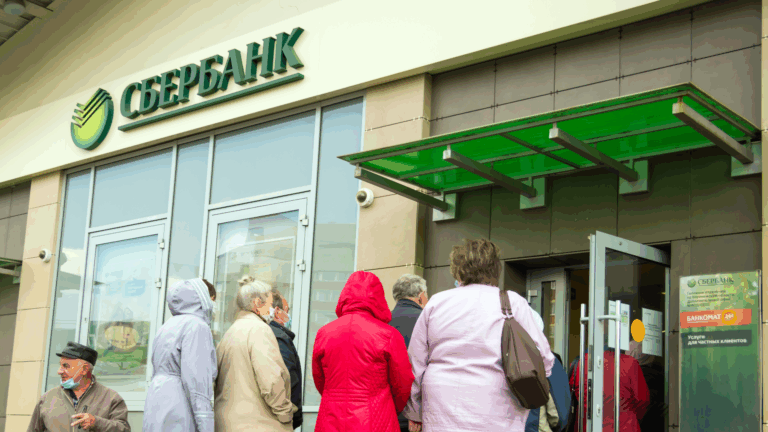The Financial Freedom Report is a newsletter focusing on the role currency and banking play in the civil liberties and human rights struggles of those living under authoritarian regimes. We also spotlight new tools and applications that can help individuals protect their financial freedom.
Good morning, readers!
This week, Bitcoin took center stage in Venezuela’s struggle for financial freedom. After the Maduro regime brazenly stole the country’s presidential election, opposition leader Maria Corina Machado spoke in an exclusive interview with the Human Rights Foundation (HRF), where she called Bitcoin a “lifeline” and a “vital means for resistance” for Venezuelans suffering under repression and hyperinflation.
In Ukraine, the International Monetary Fund (IMF) is pressuring the government to devalue its currency, the hryvnia, as part of a $15.6 billion loan deal. While the IMF argues this will boost government revenue, the Bank of Ukraine warns it could worsen inflation and further erode citizens’ purchasing power.
On the technology front, Bitcoin Dada, a nonprofit empowering African women with financial education and Bitcoin, launched Dada Devs — a new program helping women gain coding skills. Once marginalized from traditional financial systems, these women are now becoming active contributors to the Bitcoin ecosystem. Meanwhile, Strike, a Bitcoin payments platform, integrated support for BOLT 12 offers, enhancing financial privacy for recurring payments. This payment standard is valuable for activists and organizations wanting to receive donations discreetly.
We end with an insightful article from political scientist Sarah Kreps, where she examines Bitcoin’s slow adoption in El Salvador (citing factors such as reliance on the US dollar, Bitcoin’s volatility, and a preference for cash, among other reasons). Lastly, we highlight the latest episode of HRF and Pubkey’s NYC “Freedom Tech Series” featuring Bradley Rettler, an associate professor of philosophy at the University of Wyoming and co-author of “Resistance Money,” discussing the philosophical dimensions of Bitcoin and its implications on financial freedom.
Now, let’s get started!

Venezuela | Opposition Leader Refers to Bitcoin as a Lifeline
Venezuelan opposition leader Maria Corina Machado called Bitcoin a “lifeline” and a “vital means of resistance” for citizens trapped in a hyperinflationary and repressive environment under Maduro’s regime. In an interview with HRF Chief Strategy Officer Alex Gladstein, Machado stresses how the bolivar’s collapse, which saw inflation soaring to 1.7 million percent in 2018, wiped out Venezuelans’ incomes and savings. For many of them, she acknowledged, Bitcoin offered a path to financial independence. “Bitcoin bypasses government-imposed exchange rates and helps many of our people,” she said. Following the stolen election of July 28, Machado views Bitcoin as part of Venezuela’s future and said Bitcoin would be “part of our national reserves, helping rebuild what the dictatorship stole.” This could mark the beginning of a new era, where opposition leaders worldwide turn to Bitcoin as a powerful and effective means of resisting authoritarian regimes.
Ukraine | IMF Pushes for Currency Devaluation
The International Monetary Fund (IMF) is urging Ukraine to devalue its currency, the hryvnia, as a condition for securing financial support under its $15.6 billion loan program. According to the IMF, this move would boost government revenues and help stabilize the economy amid the ongoing war with Russia. But the Bank of Ukraine warns that further devaluation would worsen price instability, especially as the hryvnia has already lost 10% of its value since October 2023. For Ukrainians surviving war, grappling with inflation, navigating power outages, and high unemployment, a weaker currency would only erode their purchasing power and compound their hardships. HRF is proud to support Bitcoin Meetup Ukraine, a community helping citizens achieve financial security and independence in these turbulent times.
Tunisia | Electoral Commission Removes Three Presidential Candidates
Tunisians are struggling with growing financial hardships, with many forced into debt to navigate the country’s worsening economy. Instead of addressing these pressing issues, President Kais Saied’s regime appears focused on consolidating its power. Tunisia’s electoral commission, seen as favoring Saied, defied a court order to reinstate three key presidential candidates leading up to the Oct. 6 election. The commission only recognized Saied and two other candidates, Zouhair Magzhaoui and Ayachi Zammel. Critics say this is the latest attempt to block competition and secure Saied’s re-election. With their voice in the country’s future shrinking, Tunisians are protesting, calling this move “a complete coup against the will of the voters” and warning that it “sets a precedent in election history that the commission does not respect the decision of the Administrative Court.” Under a regime more concerned with securing its grip on power, economic relief for Tunisians remains a distant hope.
Nigeria | Protesters Facing Potential Death Penalty
In Nigeria, at least 10 protesters face a potential death penalty, charged with treason for participating in demonstrations against the country’s worst economic crisis in decades. The government accuses them of attempting to “destabilize” Nigeria and “intimidate” President Bola Tinub. These protests erupted in response to soaring inflation, widespread poverty, and severe economic hardships since Tinubu’s election. Security forces have killed at least 22 protesters so far. The treason charges set a chilling precedent, signaling the regime’s readiness to use extreme legal measures to squash dissent. Amnesty International condemned the decision, calling it a blatant abuse of the criminal justice system to silence critics of the regime’s economic mismanagement.
Mexico | Congress Advances Sweeping Judicial Reforms
Mexico’s government is steadily increasing control over financial activities, raising concerns about the potential of financial repression. A law passed in 2020 allows officials to freeze bank accounts without a court order, while a Supreme Court ruling enables financial agencies to access citizens’ banking information automatically. Now, a controversial bill passed by Mexico’s lower house of Congress threatens to erode legal safeguards further. The bill forces judges, including Supreme Court justices, to stand for election by popular vote, which critics argue will weaken judicial independence and open the door to political and cartel influence. “They want to own Mexico,” Javier Reyes, a federal court worker protesting the judicial overhaul, warned. Protesters, including students and judges, have blocked Congress, calling the bill “the end of democracy.” If passed by the Senate, these reforms could reshape the judiciary and increase government control over financial activity, threatening Mexico’s financial and democratic freedoms.

BtcTurk | Integrates Lighting Network
BtcTurk, Turkey’s oldest Bitcoin exchange, integrated the Lighting Network. This enables users to make faster, more cost-effective, and more privacy-protecting withdrawals, deposits, and payments. This is particularly important in a country of 85 million people, where 52% inflation is eroding their savings and incomes. As strongman Recep Tayyip Erdoğan continues to tighten control over Turkey’s financial system, Bitcoin offers a decentralized alternative that bypasses state restrictions. By adopting the Lightning Network, BtcTurk makes Bitcoin a more accessible tool for those seeking financial autonomy.
BitBox | Introduces Support for Sending Silent Payments
The BitBox02 is the first Bitcoin hardware wallet to support sending Silent Payments, offering a major privacy upgrade for users. Silent Payments allows senders to generate unique addresses from a receiver’s static public key. This means activists, nonprofits, and charities can publicly share a reusable address to receive donations without revealing who they are, who donated, and how much. With this integration, BitBox02 users can support causes and make payments without exposing their financial activity to unwanted parties.
Strike | Announces Support for BOLT 12 Offers
Strike, a Bitcoin payments platform, added support for BOLT 12 offers, an upgrade to the Lightning Network that brings improved receiver privacy, stronger protection against censorship, and reusable payment requests. For Strike users, this means more financial privacy for recurring payments, which is especially useful for activists and organizations wanting to receive donations discreetly (like a virtual tip jar). The upgrade also protects users by hiding their IP addresses with onion messages. These improvements make Strike a more versatile option for Bitcoin payments, giving users more privacy and control over their transactions.
Bitcoin Dada | Launches Developer Program for Women in Africa
Bitcoin Dada, a nonprofit initiative empowering African women through financial education and Bitcoin, launched Dada Devs, a program enhancing women’s development and coding skills. This initiative equips women with the tools and expertise needed to participate in Africa’s growing tech landscape by offering hands-on training, educational sessions, and a collaborative environment. Once marginalized from traditional financial systems, these women are now becoming active contributors to a global, decentralized, apolitical financial system like Bitcoin. HRF is proud to support Bitcoin Dada’s impactful work through the Bitcoin Development Fund.
Vinteum | Establishes Bitcoin Developer Launchpad in Brazil
Vinteum, a nonprofit supporting Bitcoin developers in Brazil, established a Bitcoin Developer Launchpad. This free program will train and empower Brazilian developers working on open-source Bitcoin and Lightning Network projects. Led by Bitcoin Core developer Bruno Garcia and engineering professor Edil Medeiros, the program combines workshops, seminars, and coding challenges to help participants gain the skills needed to thrive in the Bitcoin ecosystem. Participants will also receive mentorship from renowned developer and educator Lisa Neigut and Bitcoin Core developer Amiti Uttarwar and attend in-person learning in São Paulo. The program concludes with a presentation at the bitcoin++developer conference from Feb. 19-24, 2025, in Florianópolis, Brazil. Registration for the developer launchpad is open until Oct. 2.
Alby Hub | Releases Friends and Family App
In its latest release, Alby Hub, a Lightning Network node app, introduces a “Friends and Family” app, making it easier to onboard loved ones to Bitcoin and the Lightning Network. With this app, users can quickly set up self-custodial wallets for friends and family, removing the complexity of managing channels, liquidity, and the technical details that can sometimes plague the Lightning Network. This helps users avoid the need to rely on centralized custodial services, providing greater financial independence and reducing counterparty risk. Alby is also rolling out a beta version of Alby Go, a mobile wallet that makes on-the-go use of Alby funds easy.
Recommended Content
El Salvador’s Big Bitcoin Promise by Sarah Kreps
In an article for the Bitcoin Policy Institute (BPI), political scientist Sarah Kreps examines why Bitcoin adoption has struggled to gain momentum in El Salvador despite the government’s substantial investments in Bitcoin infrastructure and education. Kreps notes that while President Nayib Bukele’s administration invested large sums in creating a state-sponsored Chivo wallet, the country’s reliance on the US dollar and the volatility of Bitcoin have slowed adoption. Cash remains the preferred method of exchange, with slow technological integration and financial habits posing additional hurdles to broader adoption. Kreps, however, sees significant potential for Bitcoin in the remittance market, where Salvadorans spend millions of dollars annually on fees. She concludes that as safety improves, foreign investment grows, and younger generations become more tech-savvy, El Salvador may eventually see the “build it and they will come” approach bear fruit. Read the full article here.
HRF x Pubkey — Bitcoin is Resistance Money with Bradley Rettler
In the latest episode of the HRF x Pubkey Freedom Tech Series, HRF’s Arsh Molu sits down with Bradley Rettler, an associate professor of philosophy at the University of Wyoming, to discuss the philosophy behind Bitcoin and its role as a tool for financial resistance. Rettler, who is also the co-author of “Resistance Money,” explains how Bitcoin challenges centralized financial systems and authoritarian regimes by providing individuals with a form of currency outside government control. The conversation also touches on the ethical foundations of Bitcoin, emphasizing its potential to empower individuals and protect financial sovereignty in the face of oppressive power structures. You can watch the full episode here.
Webinar Series: How to Use Bitcoin for NGOs
HRF will host a three-day long webinar designed specifically to teach human rights defenders and nonprofit organizations how to integrate Bitcoin into their work to challenge state censorship and confiscation. From Nov. 4-6, 10:30 EDT to 12:00 EDT daily, participants will learn what Bitcoin is, how it counters financial repression, how to make payments, and how to maintain financial privacy under surveillant regimes. If you’re an activist or a nonprofit organization, we invite you to apply here.
– If this email was forwarded to you and you enjoyed reading it, please consider subscribing to the Financial Freedom Report here.
– Support the newsletter by donating bitcoin to HRF’s Financial Freedom program via BTCPay.
Want to contribute to the newsletter? Submit tips, stories, news, and ideas by emailing [email protected].
The Bitcoin Development Fund (BDF) is accepting grant proposals on an ongoing basis. The Bitcoin Development Fund is looking to support Bitcoin developers, community builders, and educators. Submit proposals here.







